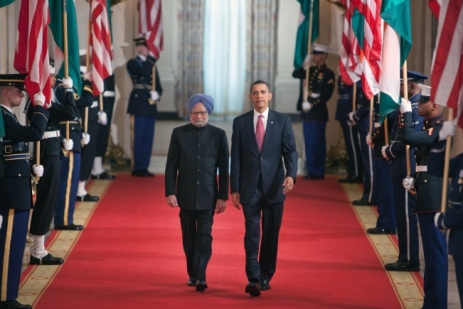Long ago, in a galaxy far, far away — well, no, actually two months ago in Washington, D.C., President Obama and Indian Prime Minister Singh inked something called the U.S.-India Climate Dialogue. It was a pretty transparent attempt to salvage something from the fact that India would never agree to binding emissions cuts (and probably the U.S. wouldn’t, either).
And what was this Dialogue supposed to do? Your guess is as good as mine, but here’s one place to start: the Trade-Related Aspects of Intellectual Property Rights accord, better known as TRIPS.
TRIPS intimately concerns climate change because intellectual property rights regimes might prevent developing countries from accessing the high technology that could reduce their emissions. For example, supercritical and ultra-supercritical coal technologies have significantly lower emissions than regular plants, and since India is going to rely on coal for a big chunk of its ongoing energy needs, it obviously makes sense for it to go with the best available supercritical technology.
But maybe it won’t be able to, because various developed country firms own the patents to this technolo... Read more


